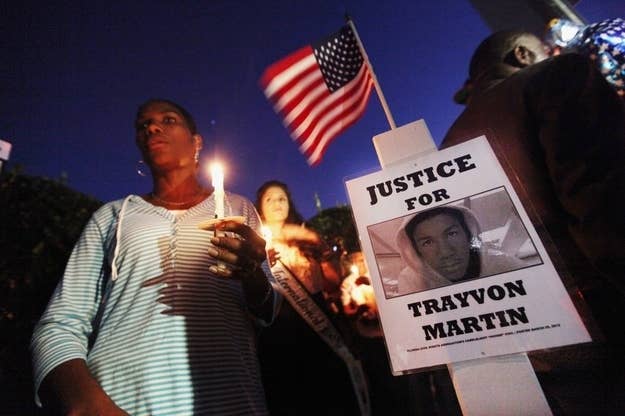Jessica Valenti, author of "The Purity Myth," says blaming Martin's death on his hoodie is just plain dumb:
The idea that the onus should be on men of color to try and prevent violence being done to them is incredibly offensive. It's clearly victim-blaming, and it's stupid to boot. Young men of color aren't targets for violence because of what they wear — they're targets because of racism, both on individual and systemic levels. What they wear has nothing to do with it.

Jennifer Baumgardner, author of "Abortion and Life" and founder of the "I Was Raped" campaign, says Geraldo's comment that teens of color shouldn't wear hoodies is depressing, but not surprising:
I'm not surprised that clothes-based victim-blaming affects men of color, just as rape victims are routinely blamed for how they are dressed. But, in short, there is not an outfit in the world that justifies rape or homicide. It depresses me that Geraldo offered this misguided advice to parents about how to protect their children from racist violence. I think this episode underlines how much tragedy goes into raising consciousness about racism, feminism — all of those -isms.
Rebecca Katherine Hirsch, Education Organizer of Slutwalk NYC, a campaign founded in response to a police officer's recommendation that women "not dress like sluts" if they don't want to get raped, had some thoughts on exactly why people blame Trayvon Martin and other victims of violence:
I like what Kimberle Crenshaw said about black women who blame black women for their own rapes. I think it fits well with a Latino talk show host telling the parents of Latino and black teenagers to forbid the wearing of hoodies: "To identify too closely with victimization may reveal their own vulnerability. Consequently, women often look for evidence that the victim brought the rape on herself, usually by breaking social rules that are generally held applicable only to women. And when the rules classify women as dumb, loose, or weak on the one hand, and smart, discriminating, and strong on the other, it is not surprising that women who cannot step outside the rules to critique them attempt to validate themselves within them."
It's much easier, too, to condemn and curtail the behavior/clothing/whatever of minorities such as women or people of color because culturally, we've been taught that these additional identities are kind of appended to the normal, human identity of white, "average" male. If an edict pronouncing that white, middle-class men all do something were out out there, I doubt we'd all take it without a fight. People in power don't like to be told what to do any more than anyone else---they just have more power and resources to resist--and society as a whole has been coerced into participating in that perception.
My solution! If everyone can get off their pedestals, accept responsibility and admit (bombastically! to the world! 'cause there's nothing shameful about being human) that We Are All Vulnerable [...] I think that'd be one step towards making us all less uptight about our place in the world.
If we have a sense of our own vulnerability, then it doesn't have so much power to inhibit us and can be integrated into our understanding of who we are and will ultimately lead to a much greater, real strength that isn't predicated on the enforced vulnerability of others.
